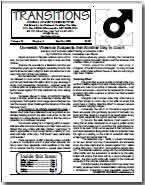Separated parents should not share custody of babies or toddlers under two, according to controversial guidelines released this week by a national infant welfare group, which seem to contradict decades of research and conclude the exact opposite.
”Prior to the age of two years, overnight time away from the primary care-giver should be avoided, unless necessary” according to the Australian Association for Infant Mental Health’s ”guidelines for protecting the very young child’s sense of comfort and security”.
The guidelines recommend that non-custodial parents, nine out of 10 of whom are fathers, should instead see children under two during the day, up to three times a week, gradually phasing in overnight visits after the second birthday. Families fighting custody battles in the Family Court should not share custody until the child is three, according to the guidelines.
”The infant’s voice can be very soft in the often highly conflictual family court arena and we hope that these guidelines will give it some strength and volume,” the association’s Victorian chapter president, Nichola Coombs, said.
The warnings follow several other studies critical of the 2006 Family Court reforms introduced by the Howard government, which singled out shared care as the option judges must consider. Three government-commissioned reports released last year highlighted widespread confusion over shared care, as well as the dangers faced by children in violent families.
The infant custody guidelines are based on a 2010 study of shared custody by clinical psychologist Dr Jennifer McIntosh, which found that ”babies under two years who lived one or more overnights a week with both parents were significantly stressed”.
Using reports from the separated parents of 258 children under two as part of the Australian Institute of Family Studies’ divorce research, Dr McIntosh concluded that: ”in their general day-to-day behaviour, these babies were more irritable and worked much harder to monitor the presence and to stay close to their primary parent than babies who had less or no overnight time away from their primary caregiver”.

“Decision makers need to think about what a very young child can cope with compared to an older child,” Dr McIntosh said. ”There aren’t black-and-white answers, but there are very good reasons to be cautious about frequent, regular overnight schedules for little people.”
While the guidelines have no legal weight, Wayne Butler, executive secretary of the Shared Parenting Council of Australia, fears they will influence judge’s rulings.
”When parents are together, they care for the babies on a shared basis,” Mr Butler said. ”There’s no reason why there couldn’t be reasonable overnight contacts [after separation] when the parents are co-operative.”
It’s rare for Family Court judges to award shared custody of babies, the Law Institute of Victoria president, Caroline Counsel, said. But she warned against hard-and-fast rules about custody: ”There are some children that manage well and some who really struggle.”
Caring for a toddler alone can be ”a tremendous burden,” Bunny Banyai, co-author of frank new parenting book Sh*t On My Hands, said. Her daughter Clementine was 18 months old when Ms Banyai separated and it was decided she was too little for overnight stays with dad. But now Ms Banyai regrets it.
”I was almost psychotic with tiredness and so my relationship with my daughter suffered,” she said. ”She was pining for her dad.”
MICHELLE GRIFFIN
Read response from Fathers4Equality
Source: Shared custody a mistake for the under-2s, says Lobbyist Researcher (http://www.f4e.com.au/blog/2011/12/26/shared-custody-a-mistake-for-the-under-2s-says-lobbyist-researcher/)


